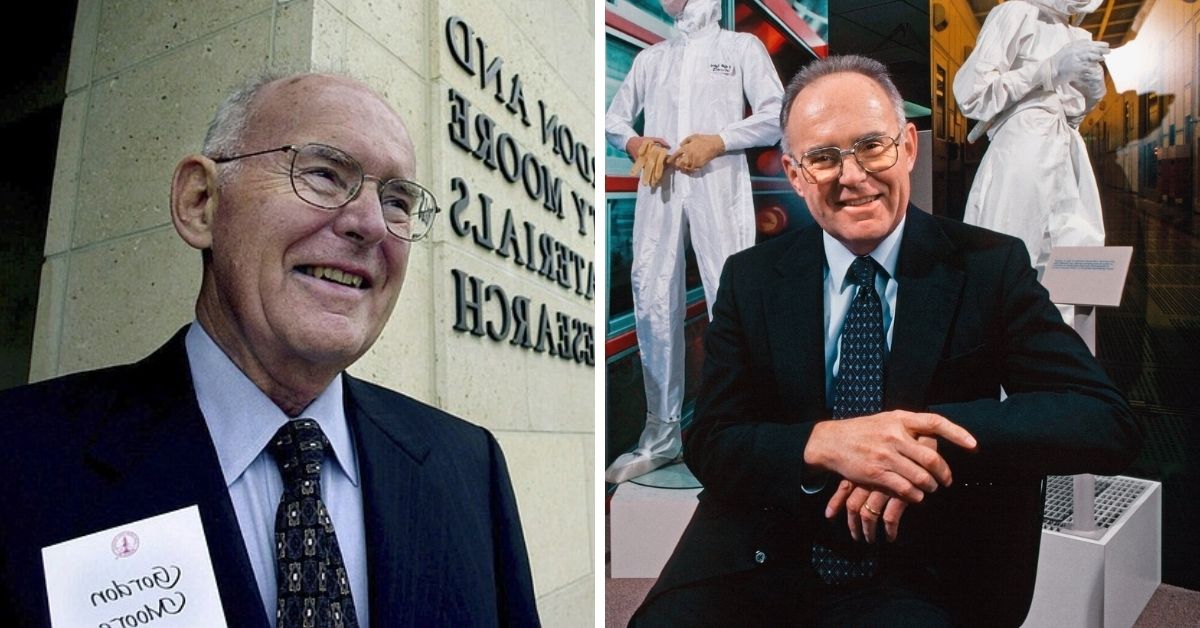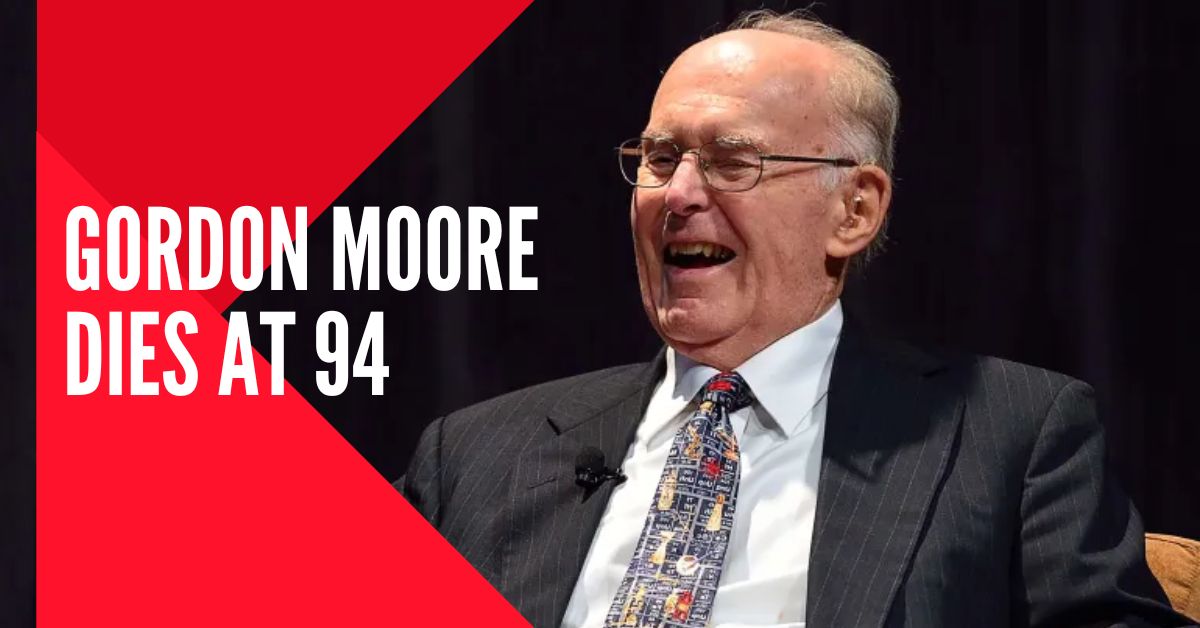Gordon Moore has died. He was a co-founder of Intel Corp. and made a simple prediction in 1965 about how quickly engineers would make computer chips more powerful. This simple prediction set the fast pace of progress in the digital age. He was 94.
Intel and the Gordon and Betty Moore Foundation say that Moore died on Friday at his home in Hawaii.
Moore, who had a Ph.D. in both chemistry and physics, made his famous observation, which is now called “Moore’s Law,” three years before he helped start Intel in 1968. It was one of a number of articles about the future written by experts in different fields for the now-defunct Electronics magazine.
Moore said he made the prediction on graph paper based on what was going on with chips at the time. It said that every year, the capacity and complexity of integrated circuits would double.
Moore’s comment was about the doubling of the number of transistors on a semiconductor. But over time, it has been used to describe hard drives, computer monitors, and other electronic devices, with the idea that a new generation of products makes the old ones useless about every 18 months. It set a standard for progress and new ideas in the tech industry.

These Articles Have Been Making Headlines:
- Paul Grant Cause of Death: Star Wars and Harry Potter Actor Dies at 56!
- Lance Reddick Passed Away: Beloved Star of The Wire and John Wick, Dies at 60
“It’s the human spirit. It’s what made Silicon Valley,” said Carver Mead, a computer scientist who worked at Caltech and came up with the term “Moore’s Law.” “said in 2005, in the early 1970s. “It’s the real thing.”
Moore became known for his charity work after he and his wife started the Gordon and Betty Moore Foundation. The foundation helps with projects in the San Francisco Bay area and focuses on the environment, science, and patient care. Since its start in 2000, it has given more than $5,1 billion to good causes.
Harvey Fineberg, the head of the foundation, said in a statement, “Those of us who have met and worked with Gordon will always be moved by his wisdom, humility, and generosity.” In 1929, Moore was born in California. As a child, he liked chemistry sets.
After getting his Ph.D. in 1954 from the California Institute of Technology, he did some research at Johns Hopkins University for a short time.
When he started working for William Shockley, who shared the 1956 Nobel Prize in physics for inventing the transistor, he started to learn about microchips. Less than two years later, Moore and seven other coworkers left Shockley Semiconductor Laboratory because they were fed up with the way its namesake ran the company.
The “traitorous eight,” as the group came to be known, left the company, which led to the rise of the “renegade culture” in Silicon Valley, where engineers who didn’t agree with their coworkers didn’t hesitate to start competing companies.
In 1957, the people who left Shockley started a company called Fairchild Semiconductor. It was one of the first companies to make the integrated circuit, which is a better version of the transistor. The first computers that astronauts used in space were made with chips from Fairchild.
Moore and Robert Noyce, who was one of the eight engineers who left Shockley, went out on their own again in 1968. They started Intel with $500,000 of their own money and the help of venture capitalist Arthur Rock. The name comes from putting the words “integrated” and “electronics” together.
In 1975, Moore became the CEO of Intel. In 1987, he stopped being CEO, but he stayed on as chairman for another 10 years. From 1997 to 2006, he was chairman emeritus. In 1990, George H.W. Bush gave him the National Medal of Technology, and in 2002, George W. Bush gave him the Presidential Medal of Freedom.
Moore was known for being humble, even though he was rich and well-known. In 2005, he said that Moore’s Law was “a lucky guess that got a lot more publicity than it deserved.”
Betty, his wife of 50 years, his sons Kenneth and Steven, and four grandchildren are the only people who will remember him.
